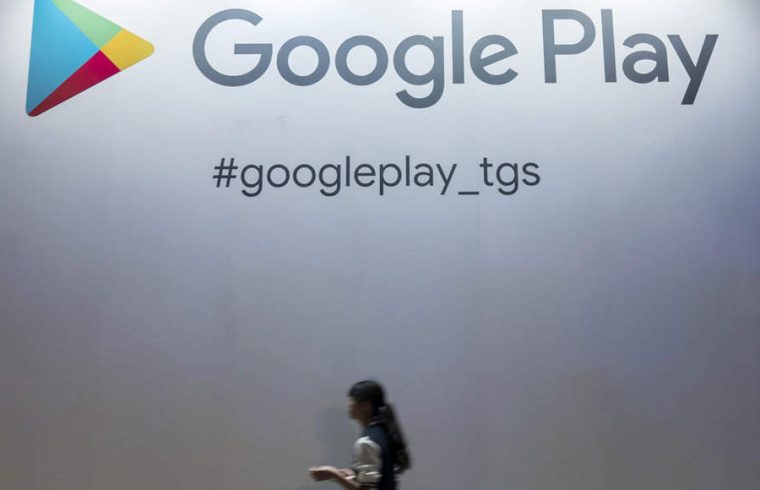
Google on Tuesday said apps that choose to sell digital content through its Play Store have to use Google Play billing system and pay a percentage of the in-app purchase as fee. The tech giant – which was recently embroiled in a controversy after blocking Paytm app for a few hours – said while the policy for using Google Play’s billing system for in-app purchases of digital goods has been in existence, there was a need to clarify it.
“Today, we are clarifying a Play billing policy, which has been long standing and existing…Recent incidents and otherwise have shown us that clarifying policies and applying them equitably and equally is very important for the ecosystem …every developer that chooses to sell digital content through Google Play will use Play billing,” Google Director Business Development, Games and Applications Purnima Kochikar told reporters in a virtual briefing.
This would mean that developers will have to start using Google’s billing system that charges a 30 per cent cut of the payment made within the app, starting September 2021.
Any app that chooses to offer in-app purchase of digital goods like unlocking additional features or buying tokens to power up a game character or paying for songs, will be required to use Google Play’s billing system.
However, physical goods (like ride hailing services) or paying for content subscription via the developer’s own website will not require Play billing.
For developers who already have an app on Google Play (which has over 2 billion monthly active users ) and require technical work to integrate with Play billing system, the company will provide time until September 30, 2021 to complete the necessary updates.
Kochikar said about 97 per cent of the developers seem to understand and comply with this policy, but did not name those who were non-compliant.
Both Google and Apple have drawn criticism from many developers over the high fees they are charged. As per reports, Spotify, Match Group (which runs Tinder) and ‘Fortnite’ developer Epic Games had announced they were joining a non-profit coalition ‘App Fair Alliance’ to pressure Apple to change its stance on fees.
Kochikar said Android allows developers to distribute their apps via third party stores. “You can also distribute your apps to the web, there are multiple ways. So, if an app is distributed through a third-party store or through the web, Play policy does not apply…It’s all about openness,” she added.
Third-party app stores include the likes of Galaxy Store (Samsung) and Indus App Bazaar. Kochikar said developers can communicate with their users about pricing and alternative ways to pay beyond their app via email or other channels.
“They will not be able to use other billing when they are selling digital content through the Play Store. They have multiple store options. They have multiple ways to sell the subscription option,” she said.
Kochikar added that the company works with startups globally and has given a long lead time to comply with the policies.
“For the ones who are using Play billing, we have doubled revenue year to date for Indian developers from India and for Indian developers globally, it has grown more than 80 per cent year to date…it is very beneficial for small developers because they can truly focus on how to build the content and grow…” she said.
A Google blogpost said this policy is only applicable to less than three per cent of developers with apps on Google Play.
“We only collect a service fee if the developer charges users to download their app or they sell in-app digital items, and we think that is fair. Not only does this approach allow us to continuously reinvest in the platform, this business model aligns our success directly with the success of developers,” it added.
The company further stated it would make changes in next year’s version of Android to make it easier to use other app stores on its devices without compromising safety. The clarification comes after Google had, on September 18, blocked Paytm app on Play store for a few hours for violating its policy on sports betting activities.
The app was restored after the Softbank-backed Paytm removed the ‘cashback’ feature. In the days that followed, Paytm – in its blog – had stated that Google mandated it to remove the UPI cashback and scratch cards campaign to get re-listed on the Android Play Store even though offering both is legal in India, and that it was offering the cashback following all rules and regulations set by the government.
Paytm had alleged that it was “arm-twisted” by the search engine major to comply with its biased Play Store policies “that are meant to artificially create Google’s market dominance.”
Asked about the Paytm controversy, Kochikar said last week’s incident clearly states that there is a need to continue to have this dialogue, to clarify and continue to apply policy uniformly and equitably.
“We have active conversation with all our developers, especially the big ones because we collectively focus on our users. We try our level best not to disrupt user experience…we’ve had multiple conversations…and we will continue to, because at the end of the day, Paytm is an important partner and a lot of our users use Paytm…” she added.
Kochikar also emphasised that there were muultiple conversations with Paytm, especially on the gambling policy over the last few months.







